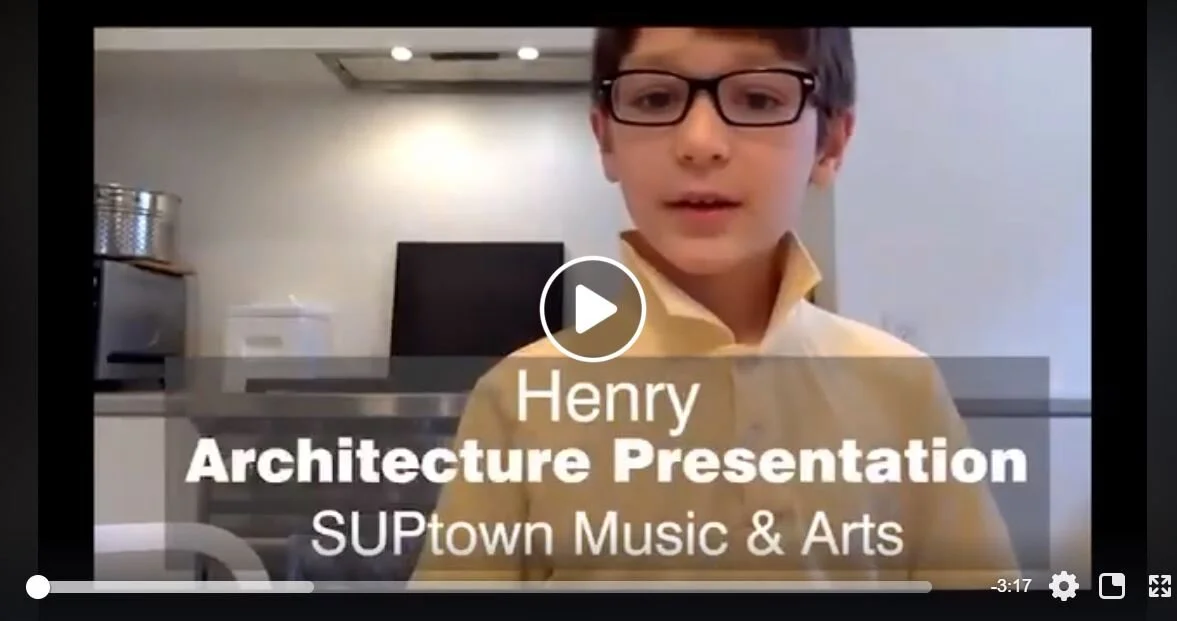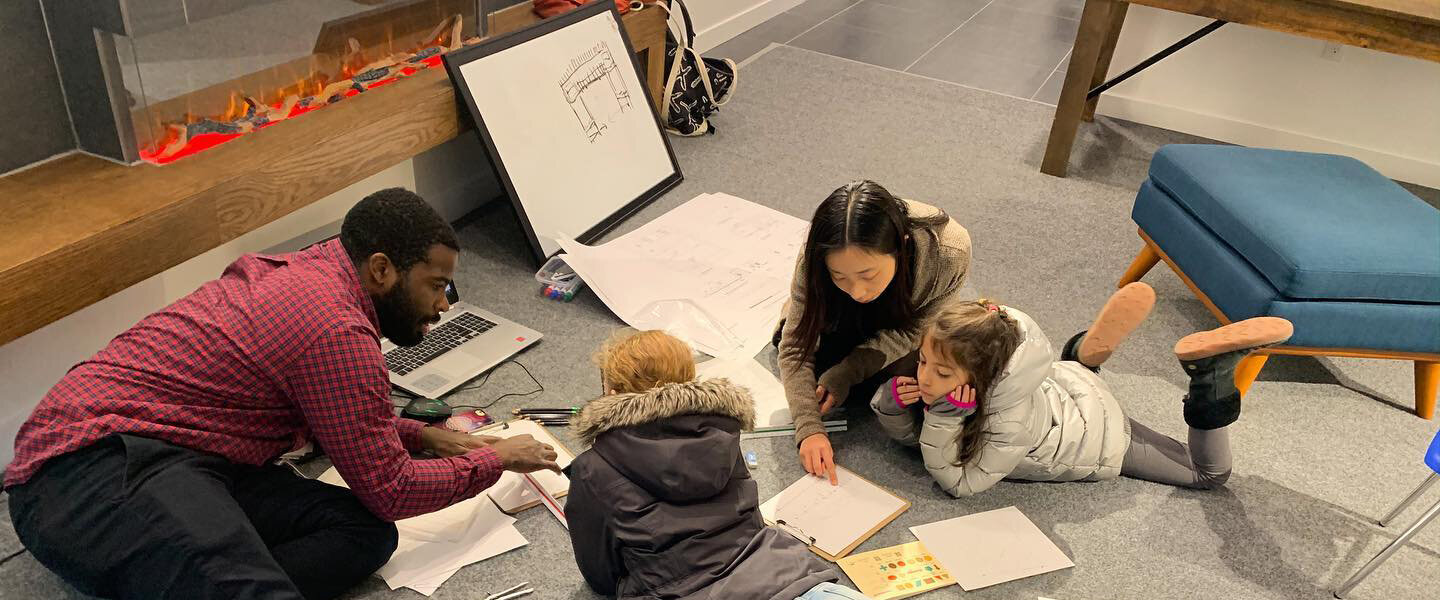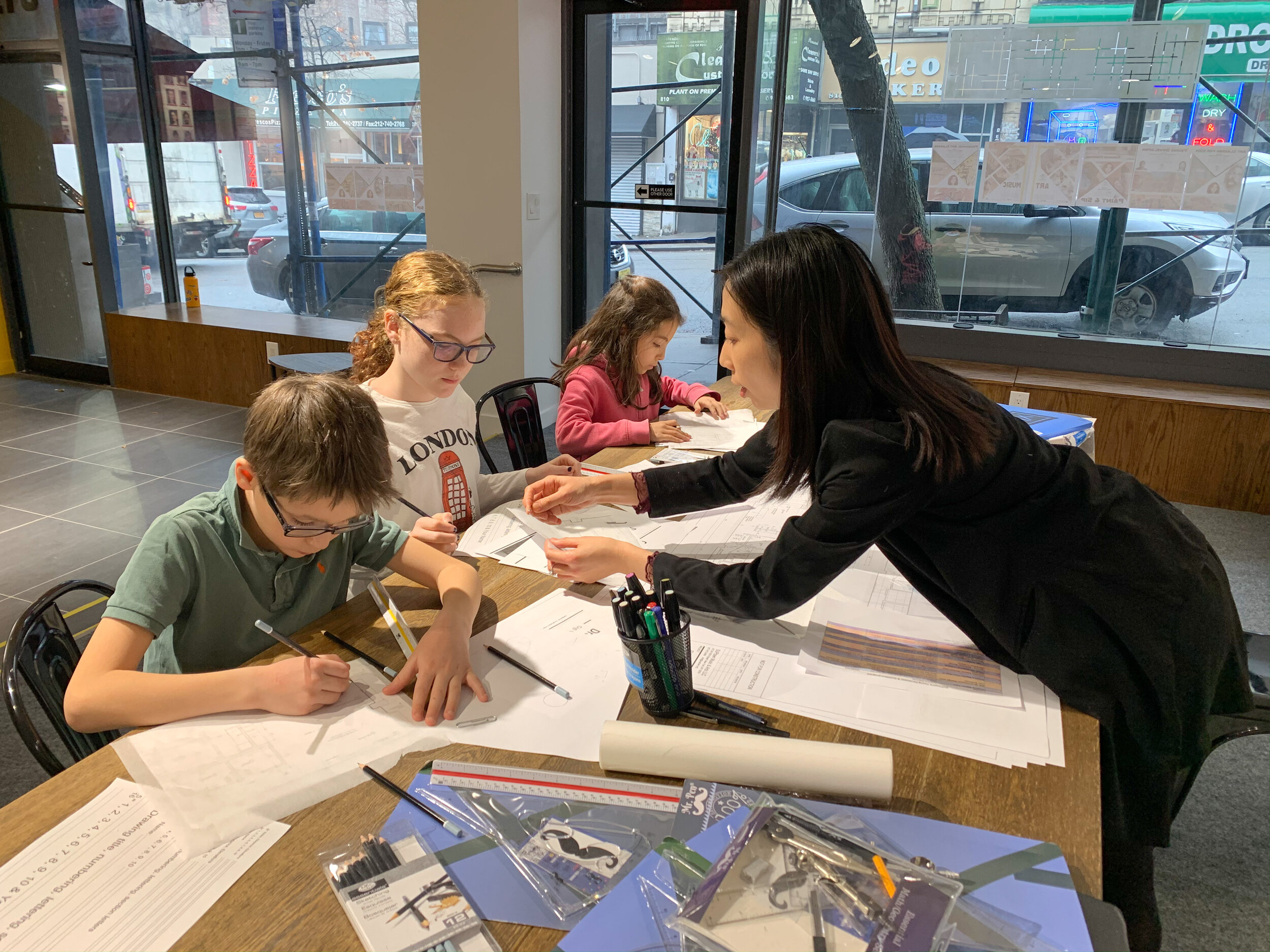Student’s story
What are the skills required to become an architect or an urban planner of the future? How does one learn to balance both the technical and intellectual, simultaneously being creative, eager to learn, and able to work collaboratively?
Some students will study architecture and design because they love the technical aspect of drawing and can position themselves as practitioners. Others might enjoy the intellectual aspects, being a critic, analyzing urban development, and shaping public agenda. Wherever one starts or whatever motivates you, both can achieve mastery; in their own time and in their own way.
This is the story of Henry, who is both technically skillful and intellectually gifted. He is a 9-year-old student of our Young Developer / Architect program and now taking one-on-one private lessons learning to draw architectural perspectives.
In our project-based design studio, Henry designed a bunk bed for himself and his little brother (the end-users). He could handle rendering the technical part of architectural perspectives, capturing materials, and recognizing intricate details.
In addition to his technical skills, Henry has a keen awareness of design. When we were discussing modern architecture, Henry always contributed thoughtful analysis. He is a child with good memory and useful knowledge. When we were introducing concepts of urbanism and notable architecture of Uptown Manhattan, Henry knew all the influential architects of the buildings on his block and their relationship to one another. He could even draw the layout of the building where he lives. Henry is sensitive to the urban environments that he visits. Even while simultaneously reading books while walking to the grocery store.
It is our pleasure to provide a fun learning environment for determined students like Henry. Through the group debate on architecture history, we hope to stimulate students' design thinking and develop their analytical skills. The private drawing lessons help students develop technical skills to freely draw what they think. The project-based design studio provides students' with the opportunity to apply their technical skills to tackle real-world challenges. The zoning workshop illustrates the predevelopment stage by guiding students through the process of buying and selling land.
We are currently providing online, one-on-one lessons. We hope to organize more in-person group programs after COVID-19. See you soon!
Gallery
About the Design Program
10-Week Young Developer Program
SUPtown NYC’s Young Developer Program is for students in grades 3-8. Students will learn basic developer and architectural skills such as drawing floor plans, site measuring, interior & graphic design, three-dimensional perspectives, zoning, playing a developer's board game, photography, materials, modeling, coloring master plans, budgeting, and presentation skills.
SUPtown’s Developer Board Game
SUPtown has developed its own board game for affordable housing that involves buying, selling, and developing land in order to teach students the fundamentals of becoming a developer with a social focus. The board game scenario is designed and based on Washington Heights, Uptown Manhattan. It aims to help students increase their awareness of what is happening in their neighborhood and build a sense of belonging to their hometown while learning basic zoning concepts.
Teaching Method
We strive to inspire students to reach their full potential through our teaching method — "Where Fun Meets Challenging!"
This method is based on the concept that studying art & design should be an equally enjoyable and challenging experience. Through this approach, students can attain greater technical ability and personal satisfaction from their studies. With an understanding that training in art & design has benefits beyond the scope of any one project; we consider both the technical skills and actualization of other practical life skills when developing our curriculum. This is the foundation of how we explain art & design concepts and determine the direction of our classes.














